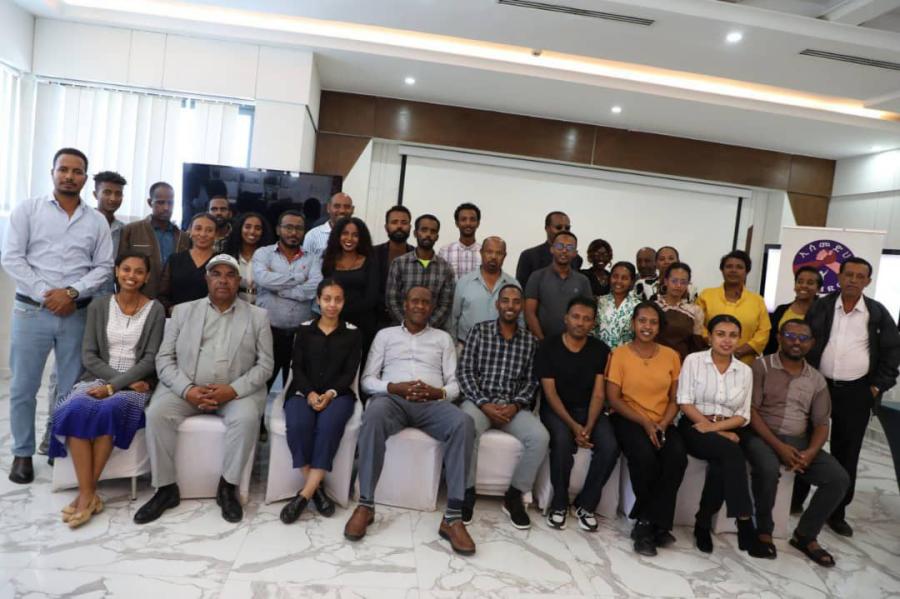Are there indigenous peoples in Africa? Not in the sense that there clearly are in the Americas or in Australia, namely peoples who occupied their territories before outsiders from another continent moved in on them. One might say that all black Africans were indigenous during the colonial era, when they were subject to white domination, but even that generalization was challenged by white South Africans who claimed that they had occupied what was literally a no man's land before black Africans moved into it from the north. Does that mean that, with the possible exception of black South Africans, most Africans were indigenous in colonial times and have now ceased to be? No, because priority in one's own land is not the only criterion for being indigenous. Indigenous peoples normally claim a special tie to their lands and strive to maintain a way of life that is different from that of the mainstream in whichever country they inhabit. Their salient characteristic is that they are dominated by alien rulers and are commonly marginal to the states that claim jurisdiction over them. All indigenous peoples are ethnic groups (or ethnic categories) but not all ethnic groups are indigenous. Only those marginalized by the state because of their `traditional' ways of life qualify as indigenous. Clearly there is no sharp distinction that can be drawn between indigenous peoples and localized ethnic groups (usually minorities). Instead we are dealing with a continuum that runs from small societies marginal to the state, to larger less marginal ones, to substantial societies that may be referred to as nationalities or nations.
Among the peoples discussed in this issue, it is relatively easy to place the San of the Kalahari desert and the Maasai of Kenya and Tanzania at the indigenous end of the continuum. Many of the peoples that inhabit (or inhabited before they were driven out) lands along the river boundary between Senegal and Mautitania are also trying to live according to their own traditions despite the efforts of the states that rule over them. The Nuba in the Sudan consider themselves, and are considered by the Sudanese government, to be an indigenous people in revolt against the state. The Somalis of Ethiopia are an ambiguous case. When we come to the horrifying and genocidal conflict between the Tutsi and the Hutu in Rwanda, we are no longer dealing with peoples who are `indigenous,' but rather with ethnic groups in conflict. Finally the struggles over land in Zimbabwe and Tanzania do not essentially involve indigenous peoples or ethnic conflict. Rather they provide sad examples of an all too common phenomenon in Africa -- how the poor and the weak are discriminated against by states that are confused and inefficient at best and rapacious at worst.
The struggle for land is the theme running through this entire issue. The San and the Maasai show how especially disadvantaged indigenous/marginalized peoples are. Even land reform can be used to deprive them of their lands, as among the Maasai. Even environmentalists and development experts can joan forces to deprive them of their resources, as among the San, while insisting that this is being done in the name of modernization and integrated development. Meanwhile, interference with traditional land uses and the customary rights of the peoples along the Mauritanian-Senegalese border has created hunger and a dramatic refugee problem, as well as bolstering the violence in an already violent region.
It is small consolation to learn that it is not only indigenous peoples who suffer. The examples of Zimbabwe and Tanzania show that it does not matter much whether the government imposes a capitalist model or a socialist one. The end result is much the same. Land redistribution ends up benefiting politicians and capitalists in Zimbabwe and village headmen and their cronies in Tanzania. In both cases the mass of ordinary farmers are dispossessed and look on helplessly as they literally see their lands being taken over by others. Confusion and corruption, both manipulated unscrupulously by the wealthy and influential, are the constants. Even Ben Lobulu's feisty paper, showing that he and his legal colleagues have occasionally been able to win land cases for the poor in Tanzanian courts, ends on a pessimistic note. Most of the time such cases simply get tied up procedurally, while the take overs continue.
None of these examples is as bad however as mass killing. The Nuba are the classic example of what often happens to indigenous peoples. The state declares war on them, tries to massacre their population and to take over their land. The Rwandan case is different. This is not the state versus indigenous peoples or even versus the poor. It is a civil war, but one with a moral for us all. The Hutu and the Tutsi are not primordial enemies, nor even originally distinct ethnic groups. The divide between them was a creation of their colonial overlords. The recent genocide in Rwanda cannot be ascribed simply to tribal hatreds and certainly not to overpopulation. It was the result of political manipulations, incitement, and a good deal of foreign meddling. At the very least, we need to understand this so that we are better able to deal with any future episodes.
Is there no hope, then, anywhere in these articles? One can take some modest consolation from the sporadic operations of democratic institutions and honest and efficient courts. One can also take some comfort from the way in which Ethiopia, which warred with neighboring Somalia and repressed its own ethnic minorities, has become a confederacy, in which Ethiopian Somalis now have their own region with it own government and language. Here, an optimistic structure is in place but can be undermined by the corruption and confusion -- also a theme running through this issue.
Article copyright Cultural Survival, Inc.

